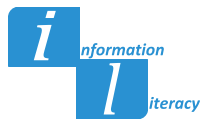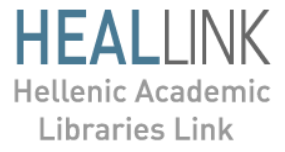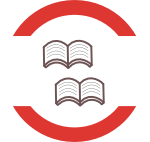Information Literacy policies are rules, guidelines, standards, or even strategies or methods through which information literacy procedures and initiatives are designed. Information Literacy policies define roles and responsibilities for all people participating in information literacy programmes/activities.
Below you may find "Information Literacy policies" applied at universities from all over the world.
Australia - New Zealand
University of Sydney
In Australia, criteria for expressing standards for information literacy have been established by the Council of Australian University Librarians (CAUL). The Library of the University of Sydney has adopted these standards as guidelines to provide a framework in which activities can be planned, presented and promoted. The Library acknowledges and affirms its role in advocating, developing and supporting information literacy skills throughout the whole University community.
URL: http://www.library.usyd.edu.au/skills/infolitpolicy.html
University of Auckland
This document is concerned with the enhancement of information literacy capabilities of students. The University of Auckland is committed to ensuring that all members of the University community have the opportunity to become knowledgeable about information resources and to use and manage information effectively. It recognises that all students need to be able to use information and information resources in ways that enhance their learning and research activities. Follows the ANZIIL standard, 2nd ed
University of Tasmania
The Information Literacy policy defines information literacy and aims to ensure that all students in the University of Tasmania develop information literacy skills. The Policy on Generic Attributes of Graduates at the University of Tasmania requires all students to graduate with a set of generic attributes that include:
- Knowledge
- Communication Skills
- Problem-solving Skills
- Global Perspective
- Social Responsibility
Information Literacy is required within problem-solving skills but also underpins knowledge attributes and communication skills. Follows the ANZIIL standard, 2nd ed.
La Trobe University
This Policy aims to ensure the embedding of information literacy skill development for undergraduates and postgraduates in the curricula, with targeted research support for individuals and groups. The policy encompasses:
- undergraduate students
- postgraduate students
- staff of the University
Follows the ANZIIL standard, 2nd ed
URL: http://www.latrobe.edu.au/policy/documents/information-literacy-policy.pdf
USA
Yale University
Στόχος του Πανεπιστημίου του Yale είναι οι απόφοιτοι να είναι πληροφοριακά εγγράμματοι. Αυτό σημαίνει ότι πρέπει να διαθέτουν τις απαραίτητες δεξιότητες για έρευνα, κριτική ανάλυση και επικοινωνιακή γνώση. Το πρότυπο Πληροφοριακής Παιδείας που ακολουθείται είναι το ACRL, το οποίο και προωθεί την Πληροφοριακή Παιδεία στην ανώτατη εκπαίδευση.
Διαθέσιμο στο: http://www.yale.edu/yce/report/libraryreport.pdf
University of Texas at Dallas
The goal of Information Literacy at the University of Texas at Dallas is to make McDermott Library an integral part of the campus learning experience; to integrate fully into the research environment; to advance lifelong learning for students, faculty and staff; to offer a variety of online tutorials; and to eventually offer credit courses. These goals can be achieved through information literacy instruction sessions, online tutorials, subject specific training sessions, and on-going one-credit classroom instruction. It is the aim of the Information Literacy program to collaborate with faculty to provide students with research instruction. Follows the ACRL standard.
URL: http://www.utdallas.edu/library/about/policies/infolitpolicy.html
University of Windsor
This Information Literacy Policy is intended to be read by any member of the University of Windsor community who wishes to know more about the vision for this new programme. Included in this document, therefore, is a working definition of information literacy, a statement of purpose, a set of overarching goals and objectives, an outline of the pedagogical underpinnings for this programme and a list of the expected contributions of, and benefits to, various involved constituencies. Appended are a list of core competencies that characterize an information literate individual, an implementation plan, and the terms of reference of the Library's Information Literacy Working Group. Follows the ACRL standard.
URL: http://leddy.uwindsor.ca/sites/default/files/files/ILpolicy.pdf
Brock University
Brock University adopts the ACRL standard. Aims at developing information literate students that shall conceptualize information seeking as an intellectual process rather than strictly a mechanical exercise. Therefore the Brock University supports that Information literacy shall be embedded into the academic curriculum of a university in order to develop to its full potential.
URL: http://www.brocku.ca/library/about-us-lib/policies/literacy-research-document
Europe
London Metropolitan University
The strategic priority of the Library services Information Literacy Policy is to contribute to the provision of a quality learning experience for students. The Library expects to fulfil this goal by developing the specialist and generic skills that enable students to engage in rewarding careers and acquire useful life long skills. The Library cooperates with Faculty members, as well as external partners, such as SCONUL, CILIP and ANZIIL to develop its information literacy program.
URL: https://metranet.londonmet.ac.uk/fms/MRSite/psd/ls/general/Information%20Literacy%20Policy.pdf
University of Bolton
The purpose of an Information Literacy framework is to outline skills to be developed at each level of higher education, with indicative learning outcomes. The framework will be a tool to help course teams develop Information Literacy outcomes, of relevance to their course requirements, within a defined context. This framework uses the SCONUL headline skills (see page 17) as a basis for the Core Standards required to be an information literate person.
URL: http://www.bolton.ac.uk/bissto/Documents/Information-Literacy-Framework.pdf
University of Liverpool
According to the University of Liverpool, Information literacy allows students to develop the capacity for independent critical analysis that is the hallmark of a university education, and equips them with the capability to update their knowledge and skills after graduation.Therefore the Unversity fully integrates Information Literacy tuition into the curriculum in a timely manner, so that students are trained in how to satisfy information needs at roughly the same time as those needs arise naturally out of academic study.





